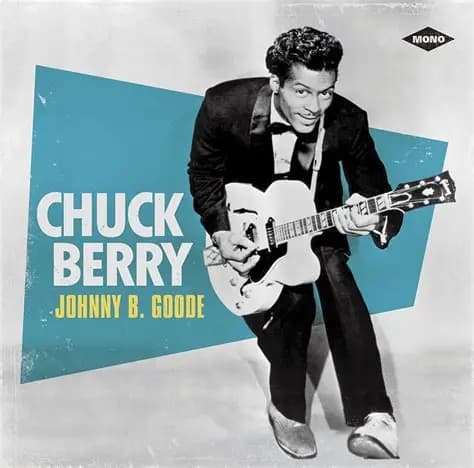
An American Anthem For The Dreamer
There are songs that don’t just tell a story; they build a mythos, and Chuck Berry’s “Johnny B. Goode” is the quintessential American rock and roll myth. When this three-chord masterpiece was released in 1958, it wasn’t just a hit; it was a manifesto. It spoke to every kid with a cheap guitar and a big dream, a song that captured the very essence of a musical revolution.
The story behind the song is a beautiful blend of reality and folklore. The “Johnny” of the title is widely believed to be a tribute to Chuck Berry himself, a semi-autobiographical tale of a “country boy” who could “play a cool guitar.” The “Goode” part of the name is a nod to his boyhood home at 2520 Goode Avenue in St. Louis, Missouri. The original lyrics were more explicit about Johnny’s racial background, but Berry wisely changed them to “country boy” to give the song broader appeal, a brilliant move that turned a personal story into a universal one. It’s a song about the struggle of an underdog, about the power of music to lift a person out of poverty and anonymity, and about the sheer joy of creating something new.
Hearing the song today is like hearing a piece of living history. The blistering, iconic opening riff—so simple yet so effective—immediately transports you back to a time when everything felt new and exciting. The driving beat, the effortless cool of Berry’s voice, and the narrative of the aspiring musician all come together in a perfect storm of energy and emotion. For us older listeners, it’s not just a song; it’s a nostalgic trip to a world that was just beginning to find its voice. It’s a memory of jukeboxes, sock hops, and the rebellious spirit of a music that changed the world forever. Chuck Berry wasn’t just a songwriter; he was a storyteller, a myth-maker, and with “Johnny B. Goode,” he gave the world a hero it could cheer for, a boy who proved that with a little talent and a lot of heart, anyone could become a star.